QUALITY CONTROL AND CONTINUOUS IMPROVEMENT – OUR APPROACH TO MANUFACTURING PLASTIC COMPONENTS FOR THE AUTOMOTIVE INDUSTRY
The automotive sector sets high quality standards for the entire industry. Every component used in the production of automobiles must meet strict standards to ensure reliability and safe driving. Passive safety systems and parts that protect passengers during an accident play a special role. They must be manufactured according to strict standards and undergo demanding tests to meet the highest quality standards. In order to achieve perfect compliance of components with the specified parameters, proper production quality management is necessary. At Knauf Industries' plants located around the world, we produce a wide range of EPP and EPS foamed automotive parts. In our daily operations, we combine extensive know-how, innovation and years of processing experience with the best standards developed in the automotive industry.
WHY IS QUALITY CONTROL SO IMPORTANT IN THE AUTOMOTIVE INDUSTRY?
Automotive has a major impact on human life – cars not only allow free movement, but have even become part of the lifestyle. Their high quality influences comfort, design and – above all – driving safety. In turn, the quality of a car is closely dependent on what components it is made of, how they are fitted together and how they work together. Car manufacturers produce only a small number of car parts, the vast majority of them coming from third-party sub-suppliers. This is why the industry has developed some of the most stringent quality standards. The best example is the global automotive conglomerate Toyota, which has become the benchmark for quality standards for manufacturing companies around the world.
The restrictive standards of the automotive industry must be met by both the automotive manufacturer (OEM) and the Tier 1, Tier 2 or Tier 3 subcontractors that appear throughout the supply chain. Knauf Industries has extensive experience in each of these roles, so we are well versed in the specifics of quality requirements at all stages of the supply chain.
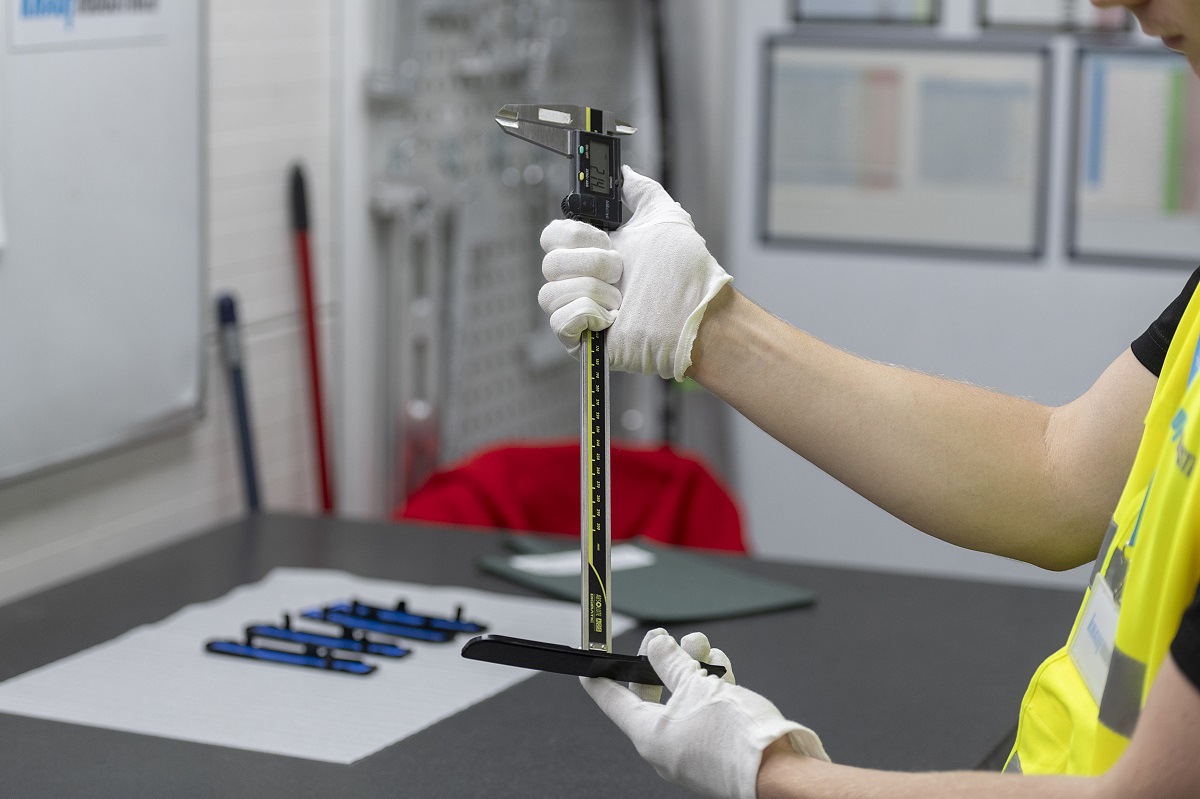
CONTINUOUS IMPROVEMENT IN PRACTICE – TYPES OF CONTROL ON THE EXAMPLE OF THE KNAUF INDUSTRIES WROCLAW PLANT
Knauf Industries' Polish plant in Wroclaw produces a full range of injection-molded components for the automotive industry, which are used both inside and outside of cars, so continuous improvement in line with the Kaizen concept is very important here.
The key is to properly identify critical processes and ensure that they are running as expected. A helpful method in this regard is statistical process control (SPC), which is used to monitor and control production processes. Potential errors and risks to product quality can be eliminated by daily internal audits on the production line.
We also use the Poka-Yoke method of quality control developed by Toyota, at the core of which is the principle of “zero defects” that could arise, for example, as a result of human inattention. The precise control is made possible by modern technologies accumulated in our own measurement laboratory. Parameters of manufactured parts are checked using laser sensors, vision cameras or spectrophotometers.
However, the most important thing is to avoid mistakes even before they are made, so we invest heavily in human capital, through training and skillful management of human resources. In fact, it is experienced production workers who create quality, and technology is only a support. Most of the Knauf Industries team are long-term employees, which gives great stability and confidence in the correct course of their processes.
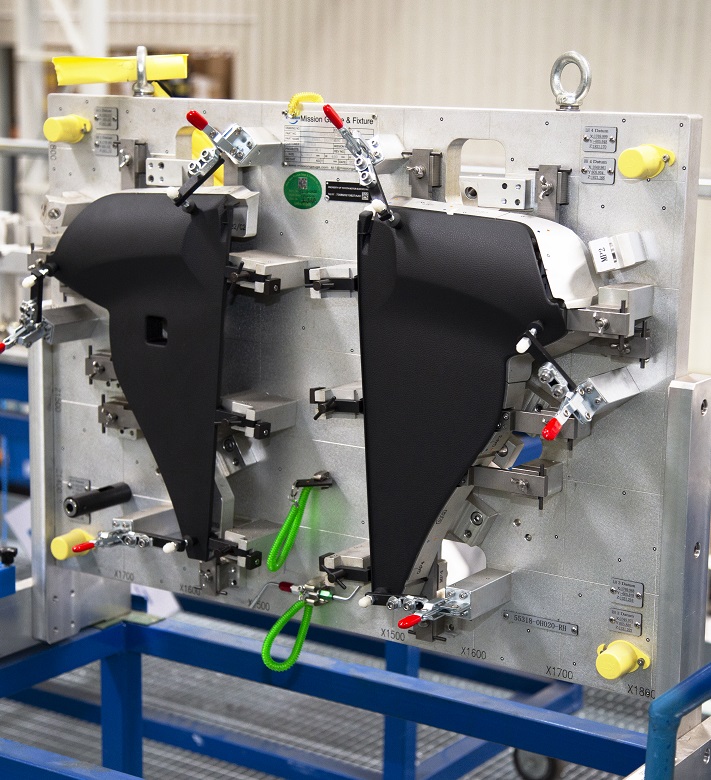
QUALITY MANAGEMENT SYSTEMS AT KNAUF AUTOMOTIVE
The current pace of development in the global manufacturing environment requires constant adherence to quality and consistency in production. In the automotive industry, effective quality management is critical and affects every company in the long supply chain.
As manufacturers of injection-molded and foamed automotive parts for major automotive manufacturers, we consider quality a key factor in our business. Every move in the automotive industry is made with a view to continuously improving the value experienced by both current and future customers. Achieving perfect compatibility of a component with strictly defined parameters requires proper management of processes related to production quality.
Knauf Industries manufactures a wide range of automotive parts from EPP and EPS foams at 18 of our 38 plants located in different parts of the world. In our daily operations, we combine extensive know-how, innovation and years of experience in plastics processing with the best standards developed in the automotive industry. Safety, performance, comfort and design are just a few areas that are subject to continuous development and quality management in the automotive industry. It is not without reason that the requirements for inspectors and auditors, as well as those for processes and documentation in production plants, are constantly increasing – quality is becoming an increasingly high priority issue.
By obtaining and maintaining these industry-leading certifications, we are able to assure customers that our products and processes are fully compliant with international and national regulations and standards.
QUALITY MANAGEMENT SYSTEM IATF 16949
- Ensures that our processes are aimed at continuous improvement.
- Ensures that products are manufactured according to customer standards.
- Increases processing efficiency (less rejects and downtime).
- Ensures continuity of supply.
- Standardizes rapid and effective response to problems..
- Sets standards in the development and introduction of new business.
- Ensures proper competence of employees.
- Ensures the highest standard of risk management.
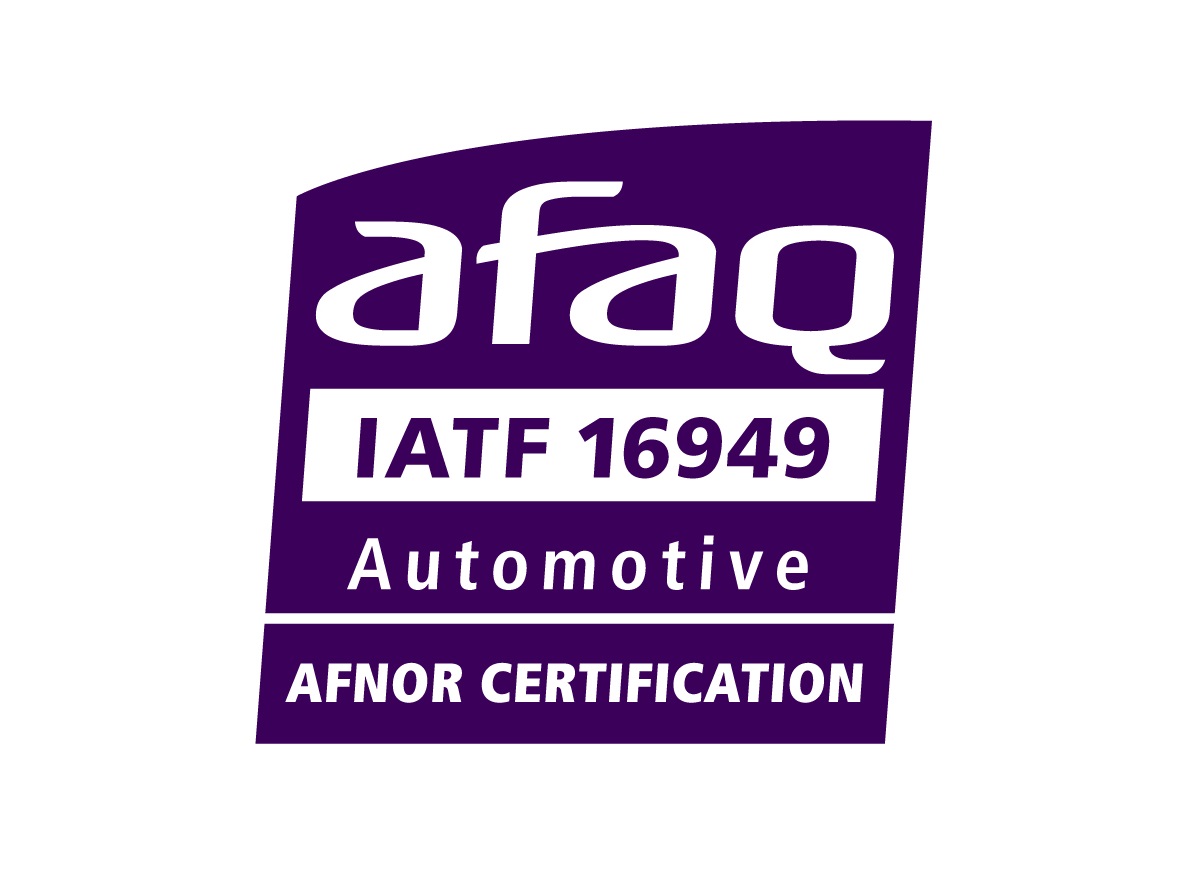
ISO 9001 QUALITY MANAGEMENT SYSTEM
ISO 9001 is a guarantee of continuous improvement of quality management systems (QMS) and processes at all production sites. Thanks to our certification, we are able to meet the most stringent quality requirements of our customers, guaranteed by our adherence to 7 principles:
- QMP 1 – Customer Focus: our primary goal is to meet customer requirements and strive to exceed customer expectations.
- QMP 2 – Leadership: managers at all levels provide unity of purpose and direction for the entire organization to create an environment in which all employees are committed to achieving quality goals.
- QMP 3 – Involvement of people: employees at all levels of the organization are competent, responsible and committed people focused on creating and delivering quality.
- QMP 4 – Process approach: our business is understood and managed as interrelated processes that form a coherent system. With this approach, consistent and predictable results are achieved more efficiently and effectively.
- QMP 5 – Improvement: we focus on improving performance by strengthening control processes and identifying the causes of problems, then taking preventive and corrective action. ISO 9001 ensures the ability to anticipate and respond to internal and external risks and opportunities. It also encourages innovation throughout the organization.
- QMP 6 – Evidence-based decision-making: we have an excellent understanding of cause-and-effect relationships and potential unintended consequences of our activities. Facts, evidence and data analysis ensure objectivity and confidence in decision-making.
- QMP 7 – Relationship management: optimal relationship management with our suppliers and partners is of particular importance to us. It ensures a good supply chain that provides a stable flow of goods and services and enhances our ability to create value for stakeholders by sharing resources and competencies.
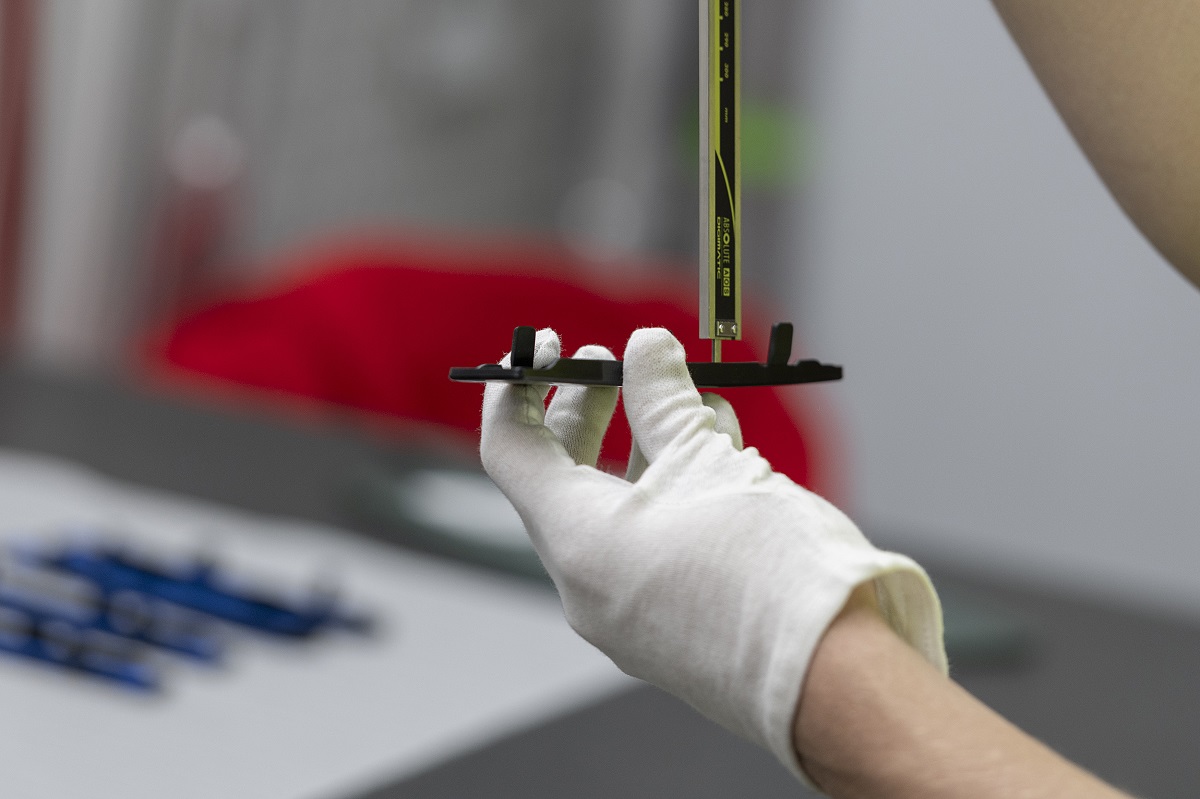
ISO 14001 ENVIRONMENTAL MANAGEMENT SYSTEM
The introduction of ISO 14001 demonstrates a commitment to the environment throughout our operations. It ensures that we comply with the latest environmental regulations and reduce activities that have an adverse impact on nature on a daily basis. What are its benefits?
- Continuous compliance with environmental regulations
- Minimization of energy and resource consumption, thereby reducing operating costs
- Continuous improvement of environmental performance

XCEED – blockchain technology to certify vehicle compliance
The XCEED (eXtended Compliance End-to-End Distributed) blockchain project aims to certify the compliance of all vehicle components, from design to production. The idea behind the project is to create a compliance and customization platform for the entire ecosystem, based on IBM Blockchain technology. With XCEED, we can improve our quality, reduce costs and waste, and anticipate problems. XCEED increases transparency and trust within the ecosystem, but this trust and confidence is also gained by our customers.
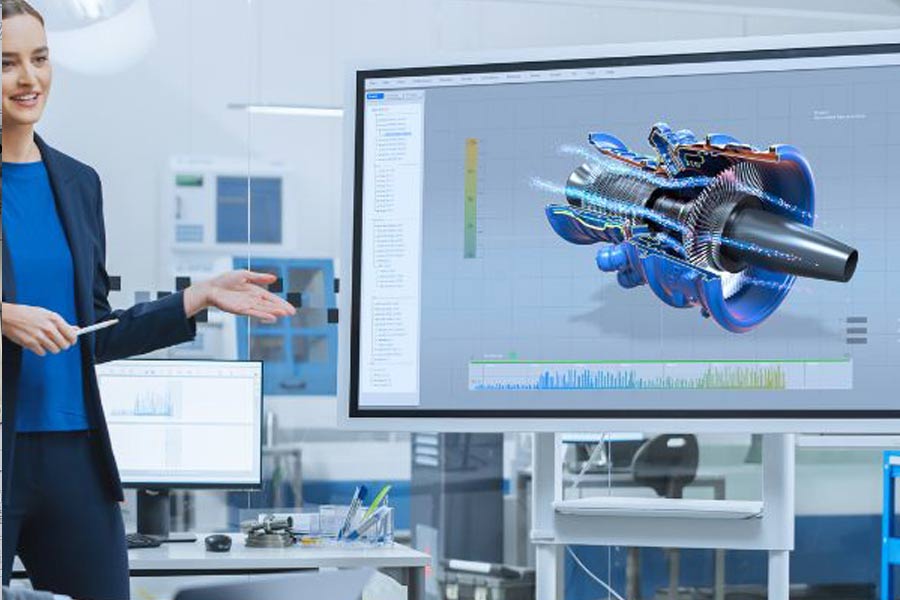
NEW SAFETY STANDARD: KNAUF AUTOMOTIVE WITH THE TISAX®CERTIFICATION
In 2024, we obtained the prestigious TISAX® certification. Created by the German organisation VDA, this global standard for information security management confirms that a company takes a responsible approach to the protection of sensitive data and is a fully trustworthy business partner.
WHAT IS THE TISAX® CERTIFICATION?
The Trusted Information Security Assessment Exchange, or TISAX® for short,is an information security standard developed by the German Automotive Industry Association (VDA) in cooperation with the ENX Association. This quality certification is a reliable confirmation that the company that holds it meets the stringent requirements in this area. In this way, it can demonstrate to its business partners that the data it processes and any external information is handled responsibly and remains secure. Holding the TISAX® certification is particularly important in the automotive industry. The high sophistication of digital processes in automotive companies means that they must approach information security management in a proactive manner. The implementation of the TISAX® furthermore makes it possible to improve this area of business operations and develop appropriate handling practices, including in the event of a possible incident. This enables faster recovery by, among other things, assessing risks and establishing procedures to ensure business continuity through, among other things, the recovery of lost information.
WHAT DOES THE PATH TO THE TISAX® CERTIFICATION LOOK LIKE?
Companies wishing to obtain a recognised certification in data security must go through a multi-stage process.
The first stage is the procedural entry into the TISAX® which takes no longer than three months. The company must first register on the dedicated online platform of the ENX Association, which manages the TISAX® process. It must provide all the key information about its operations, the personal details of the Information Security and Protection Officer and the purpose of the assessment. The organisation then undertakes a self-assessment based on the VDA ISA questionnaire, which contains a list of questions prepared on the basis of the ISO/IEC 27001 and ISO/IEC 27002 standards. The company can already make any adjustments at this stage and select an audit provider. This must be an accredited body, so as to ensure that the certification complies with current standards and practices. The assessment may include a review of documentation, interviews with employees or on-site inspections. The result of the auditor's activities is a report containing the results and recommendations for possible corrective action. A company receives the TISAX® certification only after it meets all the requirements and completes the implementation of any adjustments to its internal procedures.

RAISING STANDARDS IN THE INDUSTRY
The TISAX® certification has a significant impact on the improvement of data security standards in the automotive industry. Most importantly, it improves awareness of the principles of correct data handling among the companies that receive it. They need to understand and implement advanced information protection solutions and practices. As a result, their overall knowledge of the risks and ways to mitigate them increases. TISAX® also has an important standardisation function. It unifies the information protection rules across the industry, thus facilitating collaboration between companies and ensuring a consistent approach to data protection. TISAX® certified companies show that they take information security seriously. They are better equipped to identify and manage digital risks, which reduces the likelihood of security incidents. Because of their ability to protect sensitive data, they are considered more trustworthy. Thus, they stand out from the competition and are more likely to be selected as a business partner. This standard is applied by both suppliers and subcontractors. This is the only way to ensure the security of sensitive data throughout the supply chain.

New opportunities and challenges for Knauf Automotive
Knauf Automotive’s TISAX® certification is a clear proof that we are prepared for the challenges of digital security – today and in the future. This will increase the level of trust among our global customers and can be a decisive factor in tenders held by companies that prioritise data protection. For example, since 2018, this certification has been a key condition for cooperation with German automotive companies. As a key supplier of EPP and EPS car components to leading automotive companies, we have independent confirmation that we meet the objectives of this standard. It is worth noting that TISAX® is recognised not only in the automotive industry, but also in other sectors of the economy that require a high level of information protection.
TISAX® opens up even more opportunities for Knauf Industries to start collaboration with new partners without the need for multiple security audits. This saves time and money for all parties involved. The constant development of technology and cybercrime creates new challenges to the industry, so having proven standards for dealing with potential incidents is a must today. With TISAX®, we can be sure that we have implemented internationally recognised and effective procedures that allow us to take effective protective measures in any situation.
KNAUF – HIGH QUALITY AND RELIABILITY IN THE PRODUCTION OF PLASTIC PARTS FOR THE AUTOMOTIVE SECTOR
Knauf Industries is synonymous with the highest quality and reliability in the production of plastic components for the automotive industry. Through rigorous standards and continuous improvement, we are able to meet and exceed our customers' expectations. We invite you to contact us to learn how our advanced solutions can support your projects. Fill out the form and see how we can help you achieve your goals.